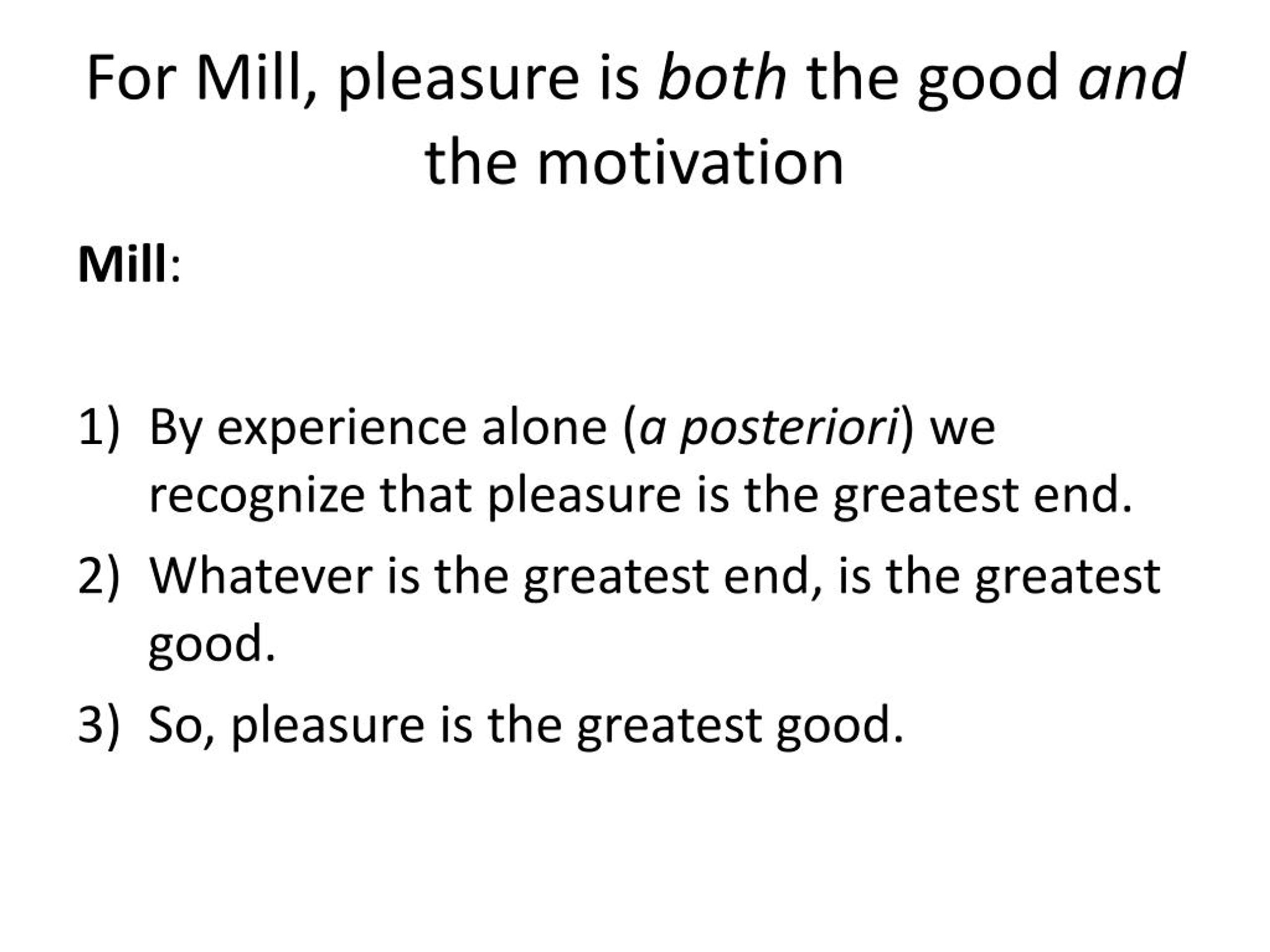


Both men were proponents of equality for all, the abolition of slavery (as this was seen as a great inequality), equality for women, and a revision of punishment systems. These principles are clarified in Mill’s “updated” version of Bentham’s Utility theory. Other principles are proposed and are derived from the first principle. All other things are secondary to this first principle. Mill wrote in Chapter 2 of his book Utilitarianism, “namely, that pleasure, and freedom from pain, are the only things desirable as ends and that all desirable things are desirable either for the pleasure inherent in themselves, or as means to the promotion of pleasure and the prevention of pain.” In other words, happiness is the only thing that has intrinsic value for a system of ethics to be derived. Unhappiness = Pain (and the absence of pleasure).Happiness = Pleasure (and the absence of pain).An action is morally good if it maximizes the outcomes from all available choices for the action. Photo: Jeremy Bentham by Henry William Pickersgill, via Wikimedia CommonsĬonsequentialism = The theory that an action is morally right or wrong based entirely from the consequences (ends).

Why would an ethical system solely be derived around obtaining pleasure? Who could calculate the future outcomes of actions? And, finally, who would have the time to figure these things out if you were pressed to make a choice? Mill’s analysis of these problems, written in the book Utilitarianism (1861-1863), further defined the Utilitarian model into what we know it as today. John Stuart Mill (1806-1873), the son of one of Bentham’s direct students, sought to redevelop Bentham’s Utility into what is largely regarded today as the “classic” theory of Utilitarianism. In light of perceived issues with this new pattern of thinking about ethics, a student of Bentham’s theories redeveloped the system. In an attempt to measure this, Bentham developed a system of Utility Calculus to determine whether something was pleasurable. For Bentham, happiness equated to pleasure.īentham adopted this practice but revolutionized it by deriving that pleasure is best not only for yourself, but for everyone in essence, the right thing to do is the thing that results in the most pleasure, therefore happiness, for every person. Bentham’s work was grounded in ideas of hedonism, which means that a person is only guided by obtaining pleasure for themselves. A student of empirical (you only know what you experience) thinkers, Bentham derived a system of consequential ethics-a theory in which actions are judged on whether they result in the most pleasure. Jeremy Bentham (1748-1842), was a philosopher, born and raised in England, during the Industrial Revolution. To understand Mill’s version of utilitarianism, a brief history is required to put Mill’s version into context with other ethical theories that are similar in scope.


 0 kommentar(er)
0 kommentar(er)
